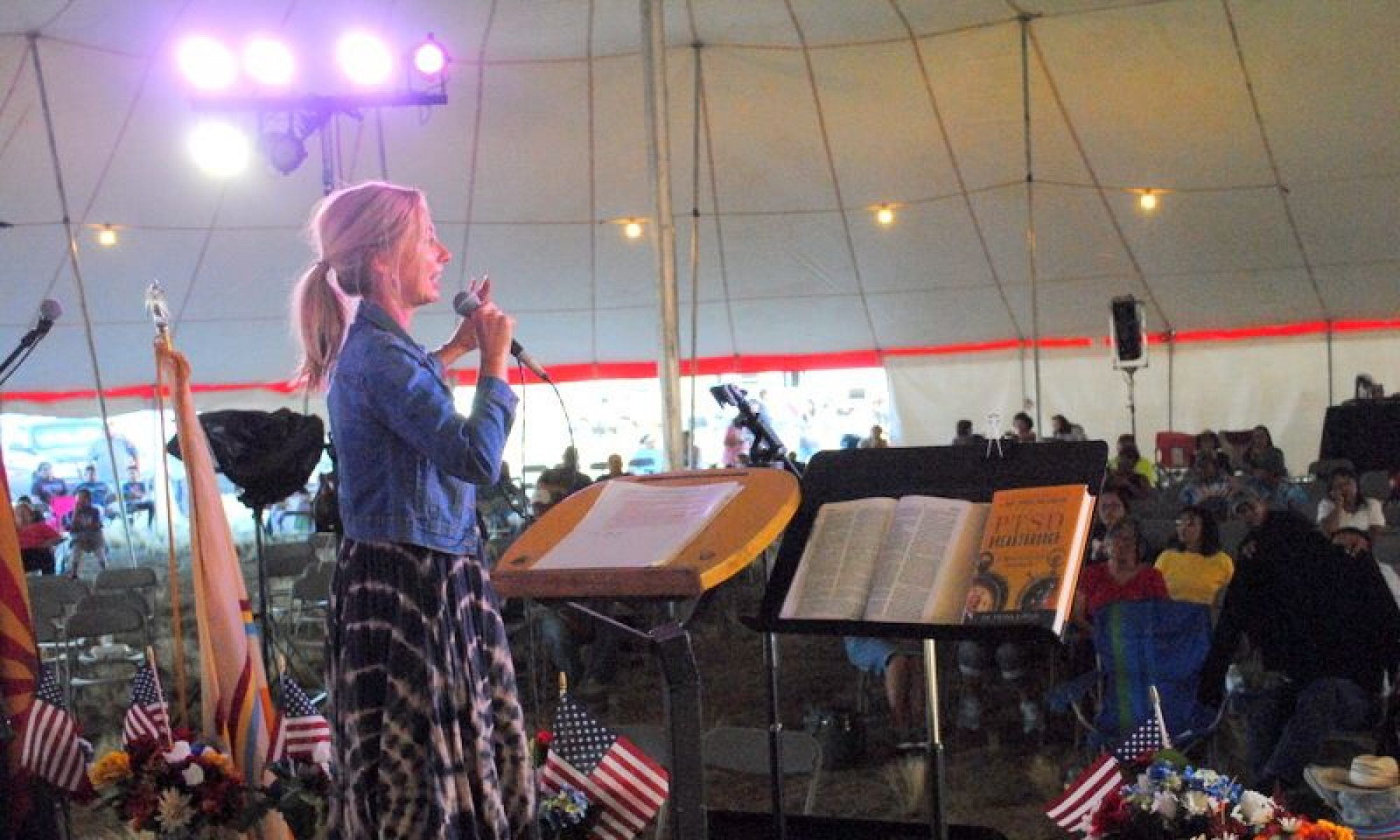Original Version
Gospel means glad tidings, good news. The gospel of Jesus Christ is good news for our world, beginning on Earth. It is comprehensive in nature, cosmic in fact. The good news is that in spite of the sin, brokenness, death and suffering that resulted from ‘the Fall’ and man’s rebellion, the kingdom of God has arrived! And there is nothing that the gospel of God’s kingdom coming to Earth doesn’t touch.
In the words of the well-known carol, Joy to the World, the goods news of the kingdom reaches ‘far as the curse is found’.1 Jesus came to bring a new way of life, a new order of society, a new world order. The gospel is to have a societal, systemic impact on cities and nations, and bring about a transformation of culture.
Primary Message of Jesus
The good news of the arrival of God’s kingdom is the primary message and theme of Jesus Christ.2 Matthew records the beginning of Jesus’ ministry and message with these words: “Jesus began to preach and to say, ‘Repent, for the kingdom of heaven is at hand’” (Matthew 4:17). In other words, the kingdom is there for the taking, it’s is graspable, available to take hold of since it has arrived.
He then records that “Jesus went about all Galilee … preaching the gospel of the kingdom…” (4:23). This theme is reiterated again when he writes, “Then Jesus went about all the cities and villages … preaching the gospel of the kingdom” (9:35). Jesus instructed His disciples to “preach, saying, ‘The kingdom of heaven is at hand'” (10:7). Jesus describes the gospel in relation to the kingdom when He says, “And this gospel of the kingdom will be preached in all the world…” (24:14). Mark writes in similar fashion, “after John (the Baptist) was put in prison, Jesus came…preaching the gospel of the kingdom of God” (Mark 1:14-15).
Primary Message of Early Church
In the book of Acts we read the early believers adopted the same primary message of Jesus. Philip “preached the things concerning the kingdom of God and the name of Jesus Christ” (Acts 8:12). Paul and Barnabas encouraged new believers to “continue in the faith…saying, ‘We must through many tribulations enter the kingdom of God’” (Acts 14:22). Paul appeared in the synagogue in Ephesus “reasoning and persuading concerning the things of the kingdom of God” (Acts 19:8). Paul, writing about his own ministry said, “I have gone preaching the kingdom of God” (Acts 20:25). While under house arrest, Paul received many visitors to whom he “testified of the kingdom of God, persuading them concerning Jesus…” (Acts 28:23).
By definition a kingdom includes a king’s domain (king-dom). God’s kingdom is all comprehensive – including all places, all peoples, and every sector or sphere of society. Literally, nothing is excluded.
Christ’s Kingdom Commission
Jesus commanded us to disciple/educate/teach whole nations (Matthew 28:18-20). This was an affirmation of the Cultural Mandate as God’s image-bearers to reproduce and fill the earth, to care for and steward communities and cities, and shape society and culture to reflect heaven. This will involve righting the wrongs, biblical justice, compassion for the sick and poor. At the outset of Jesus’ ministry in Luke 4, He is describing a social revolution. What we term the ‘Sermon on the Mount’ is essentially a kingdom manifesto (Matthew 5-7).
The gospel of the kingdom is an announcement that God’s kingdom has arrived. People are then invited to submit to the King and enter His kingdom through the new birth. Salvation is the means by which you enter. A whole and non-diluted gospel is therefore a vision for ushering in God’s kingdom – now, not in some future time, and here, on earth, not in some future heaven.
Gospel Impact
The impact of this kingdom gospel was that it turned the world upside-down and right way up. This gospel civilised the West and much of the non-western world as it was taken by missionaries to the ends of the earth.
The kingdom of God was the first kingdom the world had ever heard of where there was true equality. Christians became reformers and freedom fighters who limited the power of earthly kings, empowered parliament, and demanded civil rights for all. On the basis that all people were created equal in God’s image, they made massive contributions to the development of liberty, democracy and human rights. They became pioneers of education, healthcare, and fought for the rights of children, women and workers.
Great Christian reformers helped end the slave trade, child labour, and apartheid. Motivated by their Christian faith, some became innovators of science and technology, as well as great artists, architects, musicians and authors.
Nations embodied the Protestant work ethic, which created unplanned economic expansion that led to wealth and helped gradually end extreme poverty at home. In business they called for shorter working hours, better pay, safer working conditions, humane treatment and a day of rest.
For those overlooked, Christianity developed organisations that gave relief to the impoverished, help for the oppressed and rehabilitation for the outcast. They called for prison reform at home to global reform overseas. They informed the population about cruelty to animals, outlawed many of its crimes and created societies to enforce these laws.3
So much more could be noted but the influence of the gospel of the kingdom has been immense.
Diet (Diluted) Versions
The Church has a long history of understanding a kingdom gospel that engages in all aspects of life including government, education, healthcare, the arts, and social action. However, at different times the gospel of the kingdom has been diluted to a diet version.
This started during the time of Augustine (354-430AD) who introduced a Greek dualistic philosophy that elevated so-called spiritual things above the rest of life.
The Pietist movement in the seventeenth century also fostered a drive among Christians to focus on the spiritual realm and withdraw from the wider culture.
The Evangelical Revival or Great Awakening which began in the early eighteenth century was birthed out of a comprehensive biblical worldview, where personal faith led to action in civil society and the marketplace. Catalysed by John Wesley in England and by Jonathan Edwards and George Whitefield in the American colonies, they understood that God is the God of the whole of life, not just the spiritual realm. Out of this awakening came many who set out to re-join God’s work in the world in changing societies and the world (well-known figures include William Wilberforce, the Clapham Circle, and William Carey).
Tragically, the dynamism of the Great Awakening for the transformation of society was lost in the modern era of the nineteenth century with the onslaught of secular materialism, built on the absolute denial of the spiritual realm. Influenced by the rationalism of the Enlightenment and solidified by Charles Darwin’s book, On the Origin of Species (1859), Darwin’s theory of evolution provided a purely natural (as opposed to supernatural) explanation for the origins of life.
Diet Gospel Version #1
In responding to the increasing tide of secularism, the church was divided. Some parts of the church (termed ‘liberals’ today) embraced in varying degrees the modern secular paradigm. The powerful gospel of the kingdom that can lead to the transformation of individuals and nations was reduced to mere social activism without the need for repentance and a personal relationship with God. This version became known as the social gospel.
Diet Gospel Version #2
Other parts of the church (termed ‘fundamentalists’) reacted by holding to the fundamentals of the faith but in so doing, like the Pietists before them, gave up a kingdom gospel that transforms society for a diet version that placed an overemphasis on the salvation of individual souls (a personal and private faith).
With the growing tide of secularism and liberalism in the church, people like American evangelist, Dwight L. Moody, and John Nelson Darby (father of the modern dispensationalist movement) and their followers promoted a last-days dispensational eschatology. Many in the evangelical church began to believe that the world was getting worse and worse.
Instead of ‘the gospel of the kingdom’ that impacted every area of life causing the flourishing of the individual and societies at large, it suffered a gradual reduction to merely ‘the gospel’, a term meant to emphasize only the personal plan of salvation (sometimes reduced to four spiritual laws). The focus became saving as many people from hell as possible, for the next life in heaven. As a result, a passive stance towards society became the norm while waiting for Jesus to come back and rescue His people.4
In this way, Christians started to consume and proclaim one diet version of the gospel or the other. The original, full and wholistic gospel of the kingdom was, for the most part, lost.
Tragic Results
This reduction stripped the gospel of its cosmic dimensions, which transcend one’s personal salvation to include the whole of God’s redemptive mission in the world (i.e., the missio Dei) in which He is making all things new through Christ.
Separating the broader kingdom impact from the gospel made salvation a private event by dividing ‘my personal salvation’ from the arrival of God’s healing reign over all the world. The proclamation of the church went from “The kingdom of God has come and you are invited to join Him in His mission in the world, by repenting and acknowledging Christ as Lord” to “Invite Jesus into your life.”
This is the great dilution or reduction of the transforming gospel of the kingdom into a diet version. Dallas Willard terms this kingdom deficiency, “the great omission” in his book by this title and the primary reason “why . . . today’s church [is] so weak.” In his classic, The Divine Conspiracy, he states that instead, the Church is preaching the “gospel of sin management”.
Robert Lynn laments that “the gospel we proclaim has been shrunk”5 Scot McKnight worries that “we have settled for a little gospel, a miniaturized version that cannot address the robust problems of our world”.6
These concerns are not without substance. The church can hardly be viewed as having a significant voice in society but has been pushed out to the margins as an irrelevant tradition of the past. The church has largely been asleep at the wheel in terms of cultural engagement. As a result, the majority of believers are disempowered from discovering their kingdom calling and engaging in God’s mission project in the world.
Biblical optimism has been replaced with a fatalistic/pessimistic mindset of living in the last days, waiting for a rapture or return of Christ in order to escape the rot and go to Heaven. Self-fulfilment and individual blessings have been prioritised over educating the nations and transforming culture with the ways of the King.
Secular Humanism Now Discipling the Nations
When the Church abdicated its role of discipling and teaching the nations, others picked up the mantle. The stewardship and discipling of the nations has instead been left to the secular humanists who filled the vacuum created by the church abandoning its calling and Great Commission.
This abdication has led to huge consequences. Has Christ’s kingdom gospel transformed culture, or has the culture transformed Christ’s church? As my friend, Darrow Miller, says, ‘If the Church does not disciple the nation, the nation will disciple the Church.’
The West is reaping the results of rejecting God’s ways and the Church abdicating its commission to disciple nations. What can be done to turn things around?
Gospel Restored
There needs to be a full-scale recovery of the central teaching and full scope of the gospel, the all-important message of Jesus Christ. The gospel of the kingdom is no longer the central teaching of the church. To recover will require a huge paradigm shift after decades of gospel reductionism and dilution.
As God’s image-bearers, we were not put on this Earth to get saved and then wait for Heaven as our next stop destination. It is the arrival of God’s kingdom in and through Jesus Christ – the good news of this kingdom – that the Church is sent into the world to bear witness and bring forth as God’s instrument.
Mission Completion
A proper understanding of the Church’s purpose and mission is only possible in the light of the kingdom. And it will only be the message and demonstration of the kingdom that God’s mission in the world will be brought to a completion.
1 It is interesting that many times the verse that includes this lyric is omitted, which further highlights the loss of understanding that the kingdom has already come and that Jesus set in motion the reversal of the effects of the curse.
2 More than 120 mentions in gospels and once in Acts following resurrection; 162 times in whole NT. In contrast, Jesus only mentioned salvation twice (Lk 19:9; Jn 4:22), born again twice (Jn 3:3,7), redemption once (Lk 21:28), church 3x (Mt 16 & 18)
3 How Christianity Made the Modern World, The Legacy of Christian Liberty: How the Bible Inspired Freedom, Shaped Western Civilisation, Revolutionised Human Rights, Transformed Democracy and Why Free People Owe So Much to their Christian Heritage, by Paul Backholer, chapter two.
4 For a more detailed historical overview, see LifeWork, chapter 2 – How Did We Get Here? by Darrow L. Miller, 2009.
5 Article, “Far as the curse is found” (Breakpoint Worldview magazine, October, 2006, 14).
6 Article, “The 8 Marks of a Robust Gospel” (Christianity Today, March 2008, 36).


